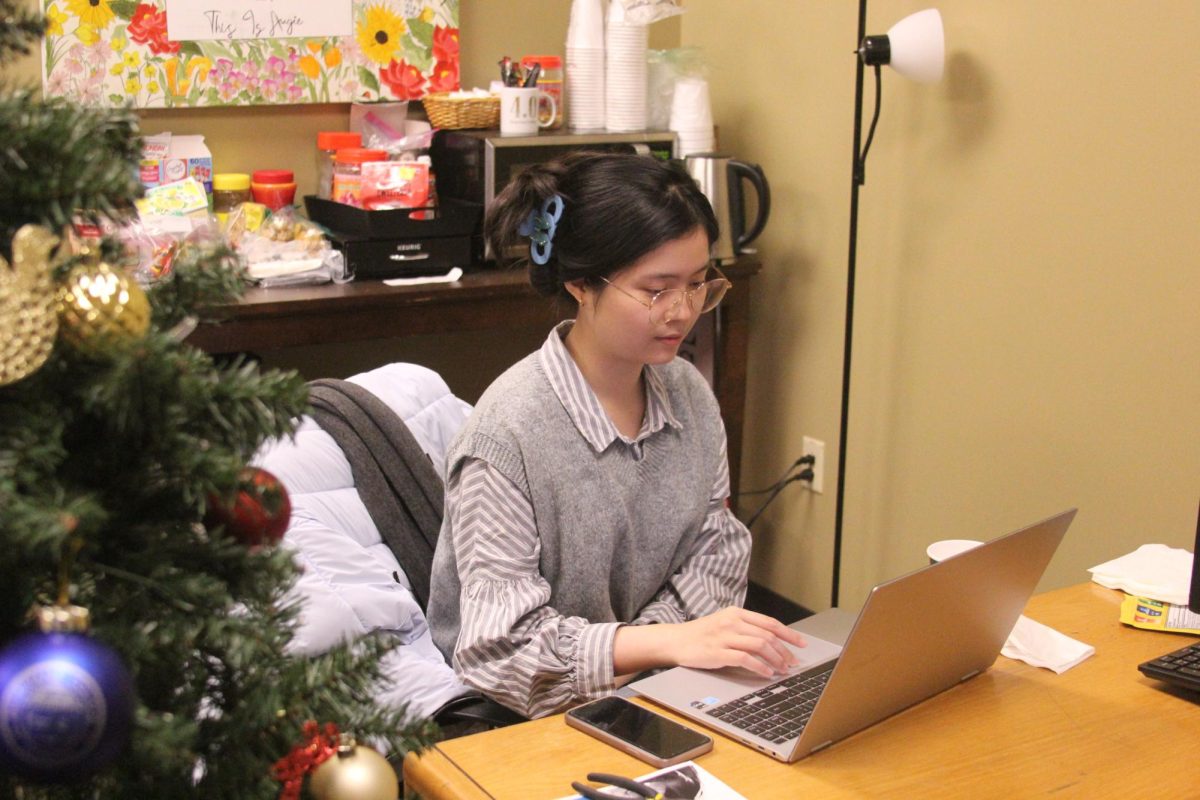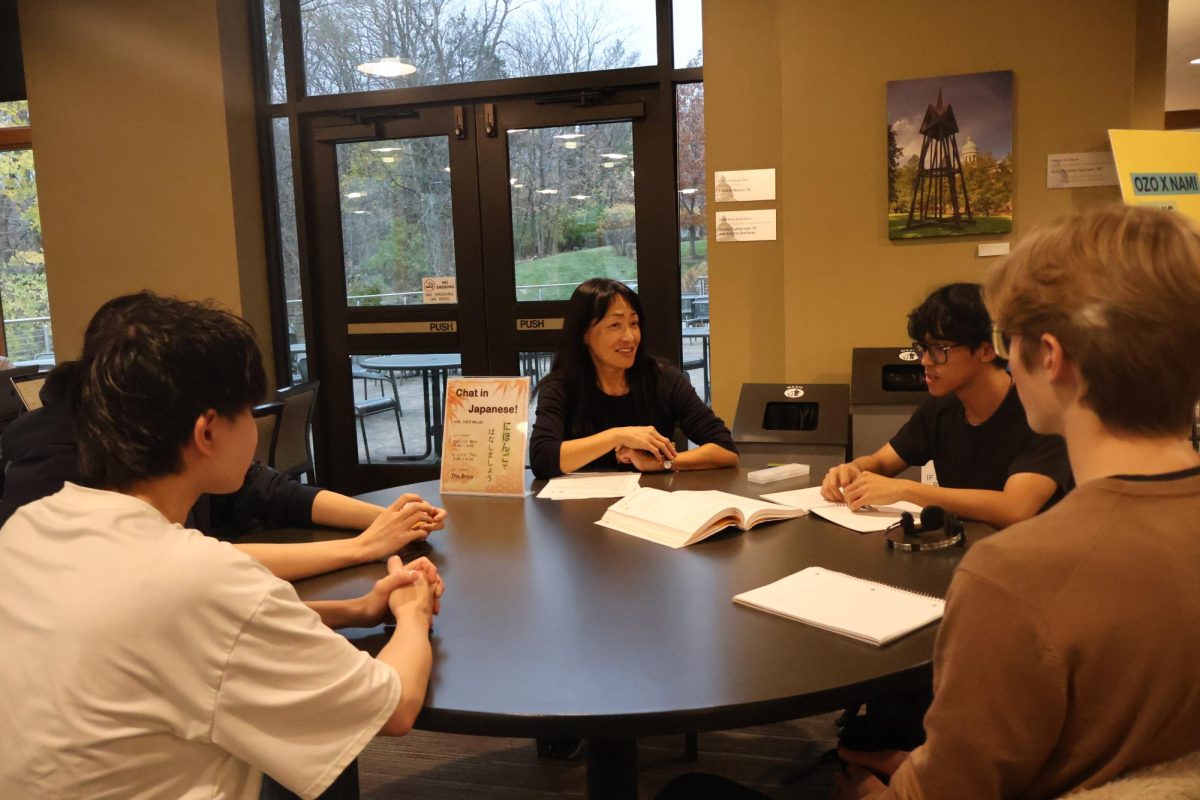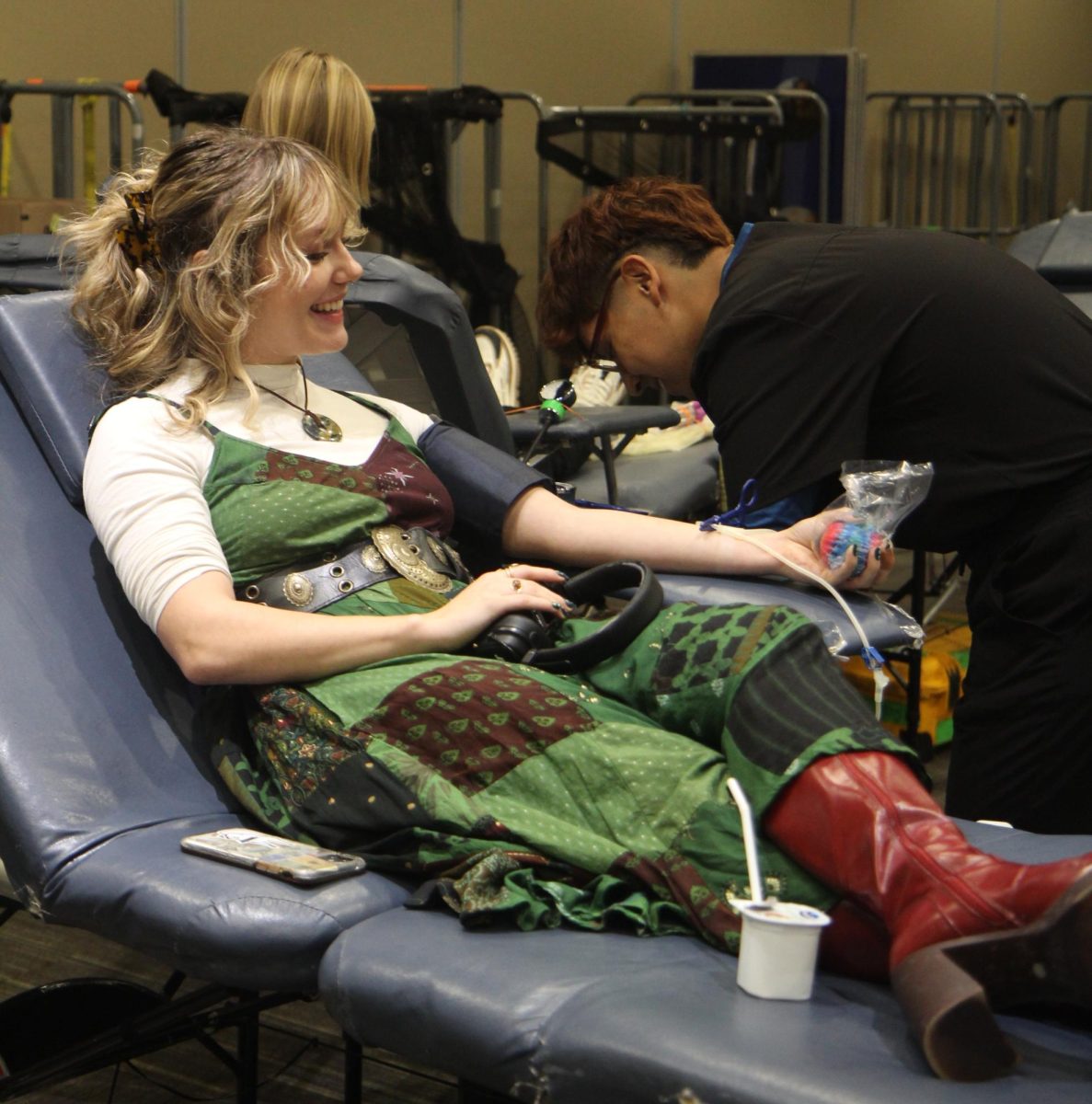Animated television shows, blue penises and Freud are the topics of Margret France’s Tea Talk, a feminist lecture series.
France, director of transfer and transitional student advising, said the television show “Bob’s Burgers” breaks away from the older Freudian model animated sitcoms often depict.
She will be presenting her findings at the next Tea Talk at 4 p.m. on Dec. 16 in Evald Hall.
In “The Simpsons,” father and son (Homer and Bart) compete for the approval of the mother/wife (Marge), said France.
“Lisa (the daughter) is sort-of an afterthought,” said France. “You basically have Bart and Homer fighting for the attention of a giant, blue penis. I don’t think there’s ever been anything more Freudian than the Simpsons.”
France said she found in her paper that “Bob’s Burgers” rejects Freud in favor of birth order theory. Instead of the show being centered around the father, son and mother, the show instead focuses on the siblings’ relationships and the fixed roles that accompany this theory.
In this theory, the eldest follows the rules, the middle child is desperate for attention and the youngest is a rebel child that may even be sociopathic. France said Tina Belcher, the eldest child, a character the queer community really identifies, with is “aggressively straight” in the way she pursues her straight love interests.
“She’s not waiting to be courted,” said France. “She has to be told (to) lay-off.”
France said this heterosexual aggression could also be seen as her following societal norms since those norms dictate vigorous heterosexuality.
“I find Tina really problematic,” said France. “I think she’s something new and exciting and revolutionary but at the same time programmed by the worst parts of our gender-biased society.”
Jane Simonsen, women’s and gender studies (WGS) professor, said France’s lecture is the second of two Tea Talks during winter term that are sponsored by the WGS department. The department hosts two Tea Talks per term where faculty, staff and occasionally students share their research surrounding the topic of gender. Danielle Beliveau-Derion, assistant professor of education, presented on gendered stereotypes in children’s folklore and literature on Dec. 2.
According to a statement written by one of the WGS founders Nancy Huse in 2012, the Tea Talks, originally called Feminist Forums, were founded in the early 1980’s in order to raise awareness of feminist issues.
“At the time, there weren’t many conversations about women, gender and sexuality outside of people in the program,” said Simonsen.
She said the name changed to Tea Talks three years ago since not everyone agrees with the term “feminist,” because the name sounds exclusive. Approximately 20 to 30 people have attended the talks in the past four years. Simonsen said the WGS advisory board selects one or two Tea Talk coordinators, who then ask the faculty for research connected to women, gender, masculinity or sexuality. Simonsen said the board attempts to get a diverse amount of department faculty members to present.
“I would hope (by going, people) would realize how much gender and feminist studies connects to different disciplines and different facets of their lives,” said Simonsen.
France said she finds it rewarding to relate a more abstract theory, such as birth order theory, to a modern show like “Bob’s Burgers.”
“It’s really important that students realize that we don’t just work on old stuff or stuff that’s really far away, that some of us get our research materials from things we look at every day,” said France.





































































































